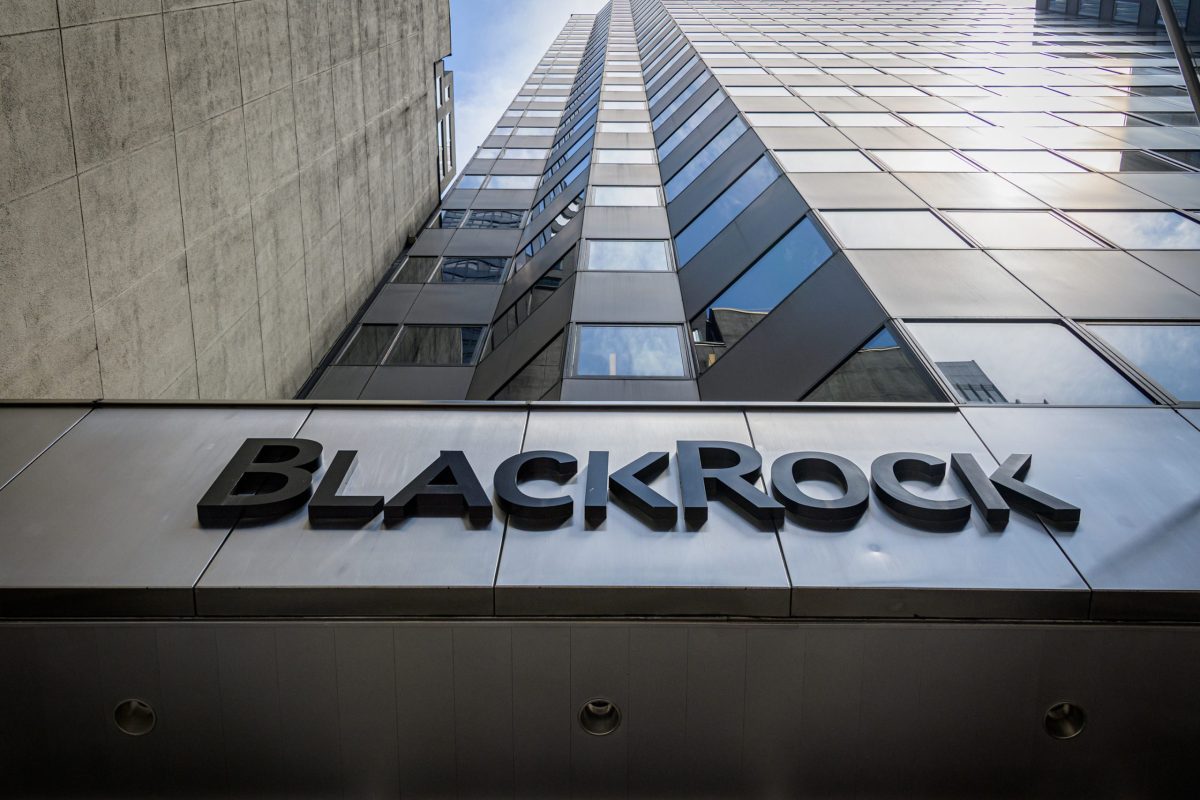BlackRock Reports Strong Q1 as Digital Assets Gain Ground Amid Broader ETF Growth
12.04.2025 8:00 2 min. read Alexander Stefanov
BlackRock kicked off 2025 with $84 billion in net inflows, fueled by record-breaking demand for its iShares ETFs and growing interest in private markets.
Despite a 70% drop in quarterly inflows from Q4 2024, the world’s largest asset manager still posted a 3% annualized growth in assets under management (AUM), which now total $11.6 trillion.
In a notable highlight, iShares ETFs drew $107 billion in Q1 inflows—an all-time high for a first quarter. Of that, $3 billion, or 2.8%, went into digital asset products, signaling continued institutional appetite for crypto-backed investments even as other issuers experienced significant outflows.
While digital assets remain a small fraction of BlackRock’s overall business—accounting for just 0.5% of total AUM and less than 1% of long-term revenue—the segment now stands at $50.3 billion in assets, with $34 million in base fees generated during the quarter. This comes as other major players in the crypto ETF space, including Grayscale, have seen investor pullback, with CoinShares reporting $1.4 billion in outflows from Grayscale’s crypto ETFs year-to-date through early April.
Private market strategies also delivered strong performance, adding $9.3 billion in inflows for BlackRock during the quarter.
Despite the overall slowdown in quarterly flows, CEO Larry Fink framed the results as a solid start to the year, emphasizing the firm’s 6% organic base fee growth—its strongest Q1 growth since 2021. He highlighted the company’s focus on long-term structural opportunities and guiding clients through a complex market environment.
BlackRock’s Q1 performance points to the firm’s diversified strength across asset classes, while also hinting at growing traction for digital asset products within traditional investment frameworks.
-
1
UK Regulators Unveil PISCES – A New Era for Private Share Trading
11.06.2025 15:00 2 min. read -
2
Trump Turns 79 With Billions in Crypto and a $45M Parade
14.06.2025 22:00 2 min. read -
3
Polygon Breaks from Decentralization as Sandeep Nailwal Assumes Full Control
11.06.2025 20:00 2 min. read -
4
KuCoin Plants Its Flag in Bangkok With a Licensed Thai Exchange
14.06.2025 13:00 1 min. read -
5
Nvidia CEO Urges UK to Invest in AI Infrastructure or Risk Falling Behind
10.06.2025 9:00 1 min. read
U.S. Bank Advises Clients to Drop These Cryptocurrencies
Anchorage Digital, a federally chartered crypto custody bank, is urging its institutional clients to move away from major stablecoins like USDC, Agora USD (AUSD), and Usual USD (USD0), recommending instead a shift to the Global Dollar (USDG) — a stablecoin issued by Paxos and backed by a consortium that includes Anchorage itself.
Vitalik Buterin Warns Digital ID Projects Could End Pseudonymity
Ethereum co-founder Vitalik Buterin has voiced concerns over the rise of zero-knowledge (ZK) digital identity projects, specifically warning that systems like World — formerly Worldcoin and backed by OpenAI’s Sam Altman — could undermine pseudonymity in the digital world.
What Are the Key Trends in European Consumer Payments for 2024?
A new report by the European Central Bank (ECB) reveals that digital payment methods continue to gain ground across the euro area, though cash remains a vital part of the consumer payment landscape — particularly for small-value transactions and person-to-person (P2P) payments.
History Shows War Panic Selling Hurts Crypto Traders
Geopolitical conflict rattles markets, but history shows panic selling crypto in response is usually the wrong move.
-
1
UK Regulators Unveil PISCES – A New Era for Private Share Trading
11.06.2025 15:00 2 min. read -
2
Trump Turns 79 With Billions in Crypto and a $45M Parade
14.06.2025 22:00 2 min. read -
3
Polygon Breaks from Decentralization as Sandeep Nailwal Assumes Full Control
11.06.2025 20:00 2 min. read -
4
KuCoin Plants Its Flag in Bangkok With a Licensed Thai Exchange
14.06.2025 13:00 1 min. read -
5
Nvidia CEO Urges UK to Invest in AI Infrastructure or Risk Falling Behind
10.06.2025 9:00 1 min. read


